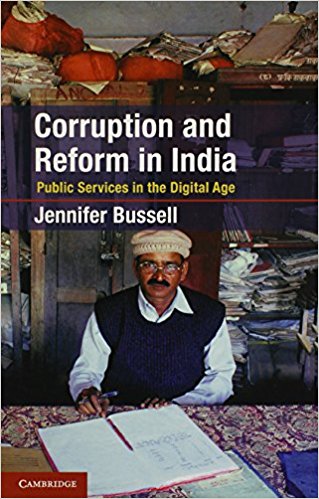‘E- governance’ is now commonly referred to as the fourth wave of administrative reforms. In India as well, the verve of E-Governance based initiatives, which began in the late 1990s continue to be seen as the primary mechanism for improving service delivery. While several studies have noted the efficacy of such reforms, few have dwelt on unpacking the incentives guiding their implementation and adoption. In trying to bridge this essential gap in understanding, Jennifer Bussell asks why politicians differed so strikingly in their efforts to use technology to improve public service delivery. She builds her analysis on the hypothesis that rent seeking behaviour plays a critical role in influencing the form and nature of reform initiatives. More specifically calculations made by political elites regarding the costs and benefits lead to a divergence in the timing, scope and scale of reforms

Where There is a Will
Gayatri Sahgal
CORRUPTION AND REFORM IN INDIA: PUBLIC SERVICES IN THE DIGITAL AGE by Jennifer Bussell Cambridge University Press, 2013, 306 pp., 895
April 2013, volume 37, No 4
